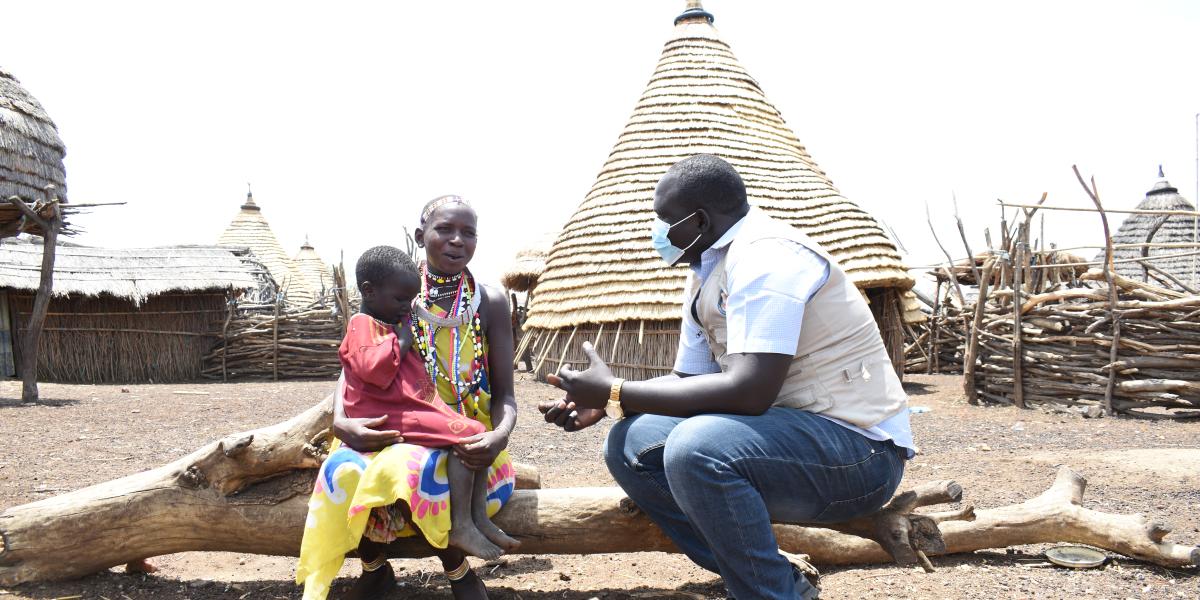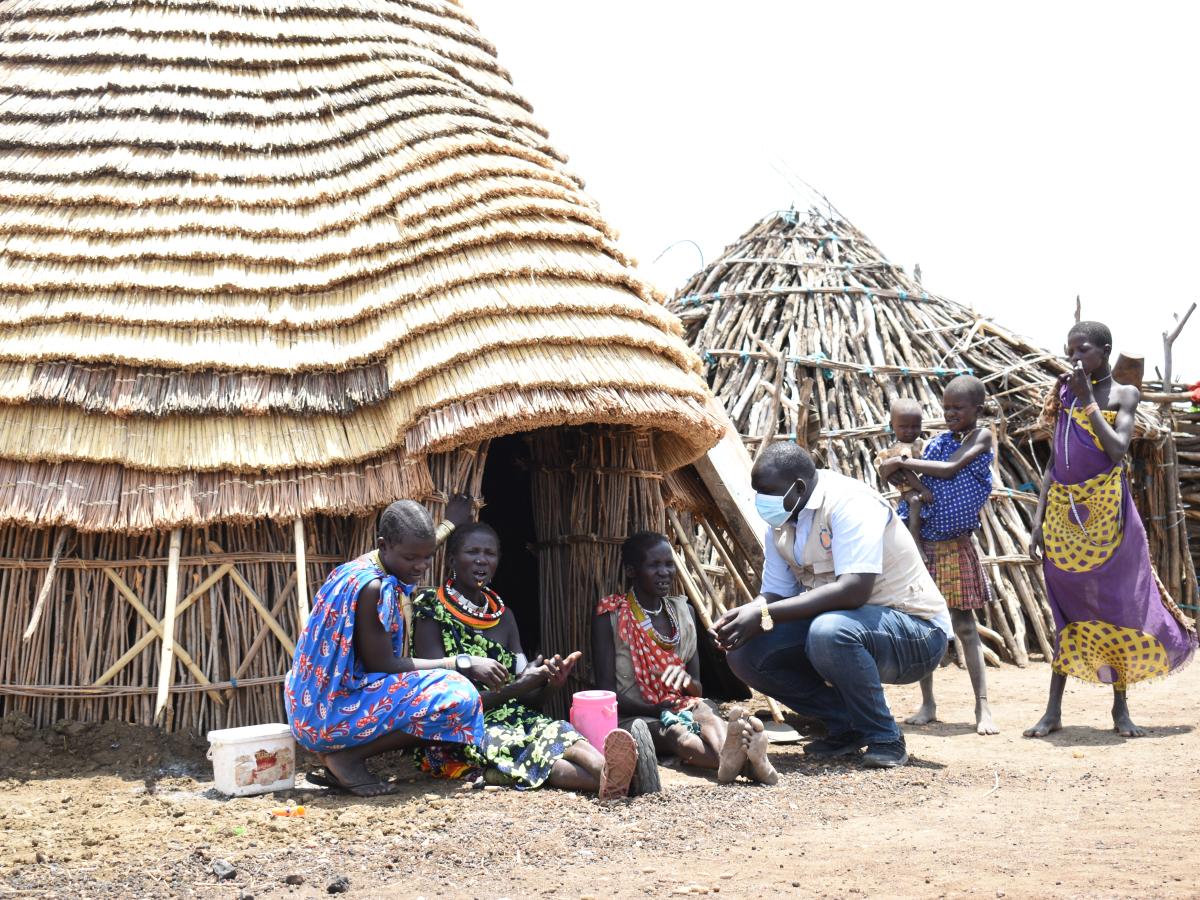Meet Job Logboro, a public health practitioner in South Sudan. Born in South Sudan, Job and his family fled their home during the country’s 1983-2005 civil war and took refuge in a Ugandan refugee camp. Despite fleeing his home and having limited access to education, Job completed secondary school in 2012 and went on to study nursing and midwifery in Gulu, Uganda.
Job remembers countless days when he walked to school on an empty stomach. This made him more determined to pursue his education and build a better future for himself, his family, and his community. Today, he works as a nurse with USAID’s CORE Group Partners Project. A multi-country and multi-partner initiative, the project provides financial and technical support for disease surveillance and outbreak response, polio eradication, immunization delivery, and household and community health education on sanitation and hygiene.

Job Logboro, a public health practitioner in Greater Kapoeta, Eastern Equatoria State, conducts a home sensitization visit in South Sudan’s Kapoeta South County.
Jemima Tumalu, CORE Group Partners Project
Job’s work isn’t easy. He remembers working with communities in Kapoeta South to dispel disinformation about vaccinations. Most families did not want their children to be vaccinated against preventable diseases such as polio, measles, and yellow fever; they believed the vaccines would paralyze their children or make them infertile. Some women shared that their husbands did not give them permission to vaccinate their children.
Armed with information and a commitment to building healthier communities, Job faced these challenges head-on. He worked tirelessly in Kapoeta South, Kapoeta East, Kapoeta North, and Budi to share facts and information. He explained to parents that vaccines could protect their children against diseases such as polio, measles, tuberculosis, diphtheria, and tetanus.
Working in South Sudan, Job faces numerous other challenges, too: insecurity, wild animals, and poor infrastructure, which is only made worse during bad weather, just to name a few. He says spending more than two nights on the road is normal when he’s working in Greater Kapoeta, especially during the rainy season. During some of his most treacherous assignments, he’s been stranded on the side of the road, left with limited food and water, and threatened at gun-point.
“What broke my heart was that, despite my sacrifice of being a health worker and contributing to the community, someone wanted to end my life, which is a painful experience,” he said. He’s grateful to the community elders who intervened and saved his life.
Despite the risks, Job remains committed to ensuring parents know where to go to vaccinate their children and how they can access needed care. Between January and March 2024, USAID’s CORE Group Partners Project helped vaccinate nearly 20,000 South Sudanese children against polio virus, measles, tuberculosis, diphtheria, hepatitis B, Haemophilus influenza, and tetanus.

Job goes house-to-house to meet with mothers and children, raising awareness of the signs and symptoms of vaccine-preventable diseases.
Jemima Tumalu, CORE Group Partners Project
